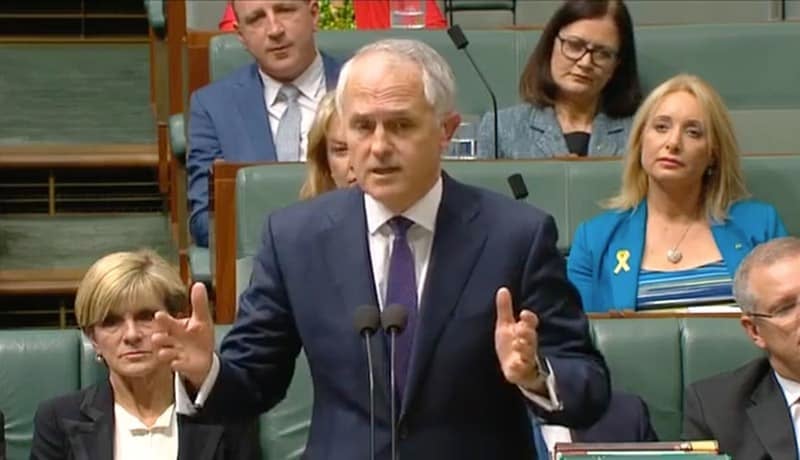Australian Prime Minister Malcolm Turnbull has urged people to vote in favor of same-sex marriage in this month's non-binding postal ballot.
Turnbull has been the subject of criticism from fellow lawmakers, LGBT rights groups and business interests for refusing to hold a vote in parliament.
In a radio interview on Sunday, he said that marriage, same-sex or otherwise, makes a country more unified.
RELATED: Hideous Australian Anti-Gay Marriage Ad Warns of Boys Wearing Dresses in School: WATCH
According to Business Insider, he added:
The things that threaten marriages are lack of commitment. I mean marriage is all about commitment, so what threatens marriage? It's neglect, it's abandonment, it's adultery, it's basically losing that commitment – it's a lack of commitment.
So if two gay people down the road, who are living together decide to get married, how does that threaten my nearly 38-year-old marriage to Lucy? Of course it doesn't.
If lack of commitment is the problem, then people showing commitment should be a positive, it actually would encourage other people to do the same.
I mean I know I sound like a very conservative person when I say this, but it's very heartfelt. I sincerely believe we would be a stronger nation if more people were married and fewer were divorced.
Throughout all my life, I've always encouraged, you know the ‘singles' to get married, the ‘marrieds' to stay married, you know, people who are straying to mend their ways, and those who have been wronged to forgive. I passionately believe in marriage and I think it is the bedrock of society.
So if two gay people who have got a commitment to each other and are living together and are supporting each other through life's ups and downs and tribulations and successes and everything else, why shouldn't we recognise that – the state, the government – recognise that as a marriage?
https://twitter.com/lanesainty/status/894485867426832385
Same-sex marriage advocates are concerned that even if the postal ballot is in favor of same-sex marriage, the issue would be sent back to Parliament, which could still reject it in a free vote.




